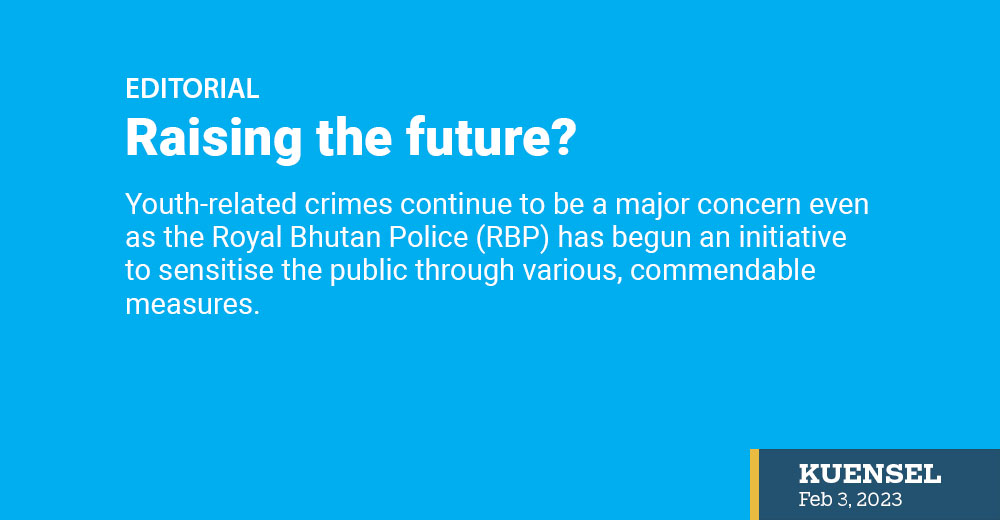Youth-related crimes continue to be a major concern even as the Royal Bhutan Police (RBP) has begun an initiative to sensitise the public through various, commendable measures.
On January 8, a group of school-going boys caused an incident at Centenary Park in Thimphu where a gang of young boys attacked a boy.
While we enjoy the reputation of being the land of the peaceful dragon, the number of violence we witness regularly in the capital is a cause for concern.
On average, the RBP arrests at least two youths every day for coming in conflict with the law.
While some are involved in trafficking drugs, others are involved in battery, alcohol abuse, larceny, and other crimes.
The question that we need to ask ourselves is: why do our young people commit such crimes?
Studies tell us that there is a pattern.
No child is born with criminal tendencies; there are factors that affect a child in a way that he or she becomes a problem, which is very complex in nature. Social, political, economic, and environmental factors play a huge part in shaping a child’s behaviour.
Peer pressure is one. The transition to adolescence can be challenging, traumatic, even. When children feel the need to identify themselves with a certain group to belong to in society, friends play a huge role in shaping their identity.
And there is the problem of poor education—very relevant in our case. Although we provide free education, quality matters. Quality of education is not just about passing exams and landing a good job; it is about imparting good values.
Then there is the issue of substance abuse. Alcohol is freely available. Harmful substances are within easy reach of our children somehow. Excess to harmful substances affects the cognitive development of a teen which lowers his or her inhibitions and ability to evaluate risks.
According to a well-placed study, drugs and alcohol are regarded as powerful contributors to juvenile crime.
Finally, and most important, our children are not getting the love and care of their parents. Because of economic situations, parents are not able to give healthy time and environment to their children. Lack of love and attention leads to poor academic performance of our children. This gives rise to a dangerous feeling in children—the sense of independence, that they can do whatever they wish to.
Bhutanese children are growing up in this kind of atmosphere.
Law enforcers tightening their grip will only come to naught. The bigger problem is the societal negligence of young people.
How are we addressing the issue through policies?


